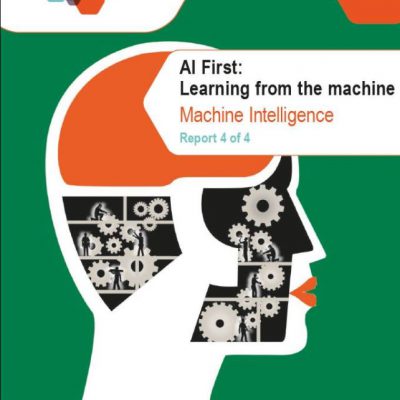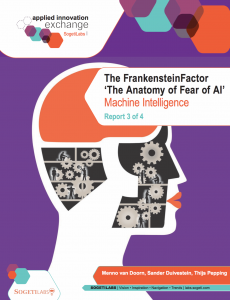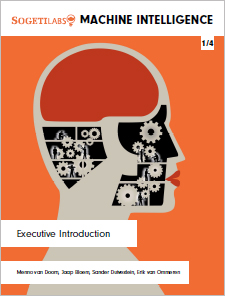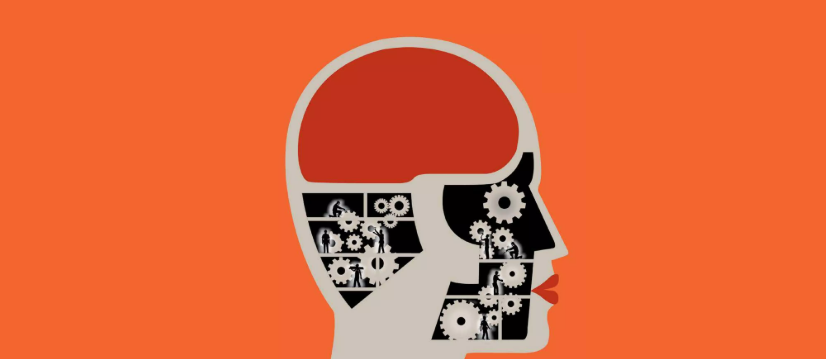AI First : Learning from the Machine

More and more companies are now taking action with more than a third of the organizations applying AI at scale. Place AI at the heart of your digital activities, that is the most important message. After decades of too much promise from technology, we now see a breakthrough in the realization of concrete business value. A new AI focus is essential because your competitors will certainly use the learning acceleration offered by AI’s specific capabilities to gain a head start. The last in a series of four qualitative research reports on the topic of Machine Intelligence, ‘AI First: Learning from the machine’ states that profit and economic growth go hand in hand with the proactive deployment of AI. It further asserts that companies can raise their Corporate IQ by embarking on a new journey of discovery built on intelligent machines. ‘AI First: Learning from the machine’ explores the latest developments on the journey to being an AI-first organization and recommends a number of actions for improving Corporate IQ with a better understanding of the relationship between man and machine.

 English | EN
English | EN 

